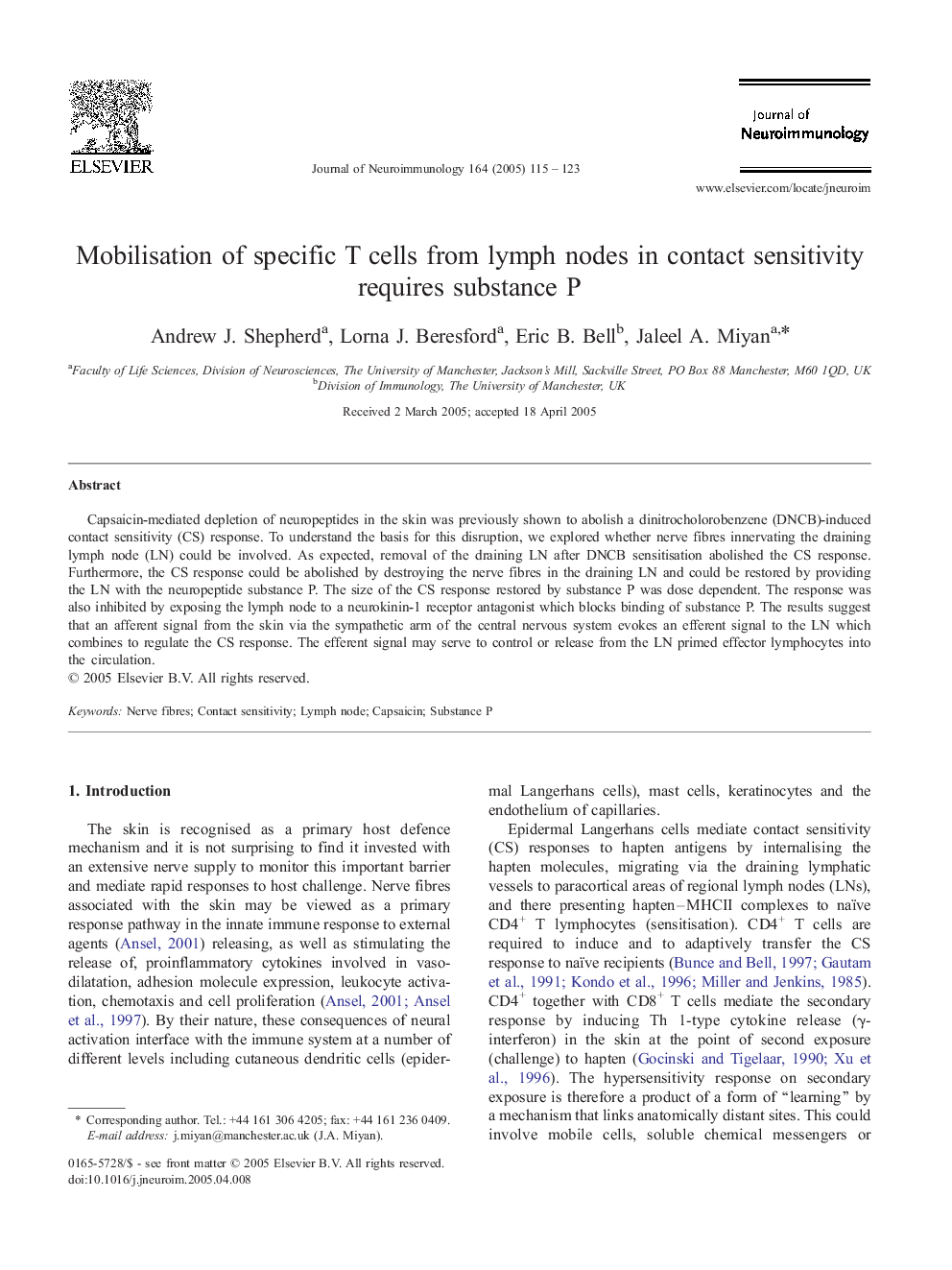| Article ID | Journal | Published Year | Pages | File Type |
|---|---|---|---|---|
| 9194737 | Journal of Neuroimmunology | 2005 | 9 Pages |
Abstract
Capsaicin-mediated depletion of neuropeptides in the skin was previously shown to abolish a dinitrocholorobenzene (DNCB)-induced contact sensitivity (CS) response. To understand the basis for this disruption, we explored whether nerve fibres innervating the draining lymph node (LN) could be involved. As expected, removal of the draining LN after DNCB sensitisation abolished the CS response. Furthermore, the CS response could be abolished by destroying the nerve fibres in the draining LN and could be restored by providing the LN with the neuropeptide substance P. The size of the CS response restored by substance P was dose dependent. The response was also inhibited by exposing the lymph node to a neurokinin-1 receptor antagonist which blocks binding of substance P. The results suggest that an afferent signal from the skin via the sympathetic arm of the central nervous system evokes an efferent signal to the LN which combines to regulate the CS response. The efferent signal may serve to control or release from the LN primed effector lymphocytes into the circulation.
Related Topics
Life Sciences
Immunology and Microbiology
Immunology
Authors
Andrew J. Shepherd, Lorna J. Beresford, Eric B. Bell, Jaleel A. Miyan,
